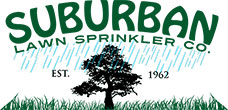
Your backyard is more than just a patch of grass—it’s where your kids play, where you relax, and for many of us, it’s where our pets roam, roll, and enjoy the outdoors. Unfortunately, common lawn pests like grubs, fleas, ticks, and ants can threaten not only your landscape but also your family’s comfort. At Suburban Lawn Sprinkler Co., we believe in creating outdoor spaces that are both beautiful and safe for every member of your household—including your pets.
Let’s explore some effective pest control options that won’t put your four-legged companions at risk.
The Hidden Dangers of Traditional Pesticides
Conventional lawn chemicals may be effective at eliminating pests, but they often come with warnings for a reason. Pets are especially vulnerable to exposure through their paws, skin, and when grooming themselves after playing in treated areas. Even small amounts of toxic substances can lead to digestive issues, respiratory distress, and more serious long-term health conditions.
Rather than taking the risk, more homeowners are turning to pet-friendly alternatives that offer peace of mind without sacrificing results.
Gentle But Effective: Natural Lawn Care Solutions
There are several safe, non-toxic pest control products available today that are designed to be tough on pests but gentle on pets. These natural solutions are biodegradable, environmentally conscious, and often made from botanical ingredients.
Popular pet-safe options include:
- Cedarwood oil and peppermint oil sprays – naturally repel insects like ticks, fleas, and mosquitoes
- Food-grade diatomaceous earth – physically damages pests without chemicals
- Beneficial nematodes – microscopic organisms that attack pest larvae in the soil
- Neem oil – targets various pests while being safe for pets when used correctly
Be sure to check labels and only use products labeled as pet-safe, and apply according to manufacturer directions.
Integrated Pest Management: A Smart, Holistic Approach
Instead of relying solely on pesticides, consider an integrated pest management (IPM) strategy. IPM focuses on prevention first and uses targeted methods to manage pests in the least harmful way possible.
Here are a few simple yet powerful steps to include in your lawn care routine:
- Remove standing water to prevent mosquito breeding
- Mow regularly and keep grass at the recommended height to discourage ticks
- Clear debris where pests like to hide
- Aerate and seed to keep your lawn thick and healthy—healthy grass makes it harder for pests to gain a foothold
At Suburban Lawn Sprinkler Co., our professional irrigation systems can also play a role in pest prevention by helping you avoid overwatering, which often attracts insects and encourages fungus.
Tips for Applying Pet-Safe Pest Control
Even natural products need to be used responsibly. Here’s how to ensure your pets stay protected during lawn treatments:
- Keep pets indoors during application and until the lawn is dry
- Use granular products when possible—they’re less likely to stick to paws
- Water the product in if instructed to help it absorb into the soil and reduce surface exposure
- Monitor your pets after application for any signs of irritation or illness
If you’re ever unsure about a treatment’s safety, check with your vet before use.
Create a Safe, Pest-Free Yard with Suburban Lawn Sprinkler Co.
Your lawn should be a safe haven, not just for your plants—but for your pets, too. At Suburban Lawn Sprinkler Co., we’re proud to offer more than just irrigation and lighting services—we offer solutions that fit your lifestyle. Whether you’re looking to maintain a lush, green lawn or you need help selecting pet-friendly treatments to handle a pest problem, we’re here to help you get the job done safely and beautifully.
Contact us today at (508) 872-2727 to learn more about building a yard that works for your whole family—paws included.








